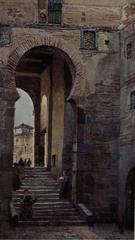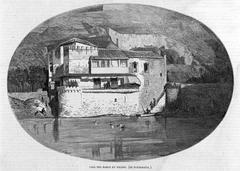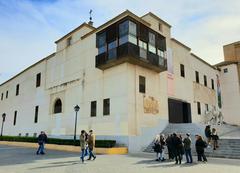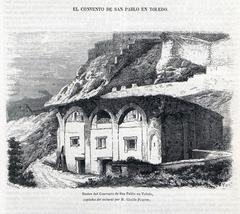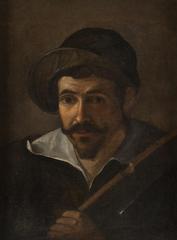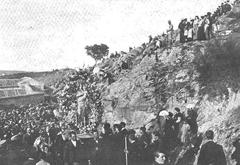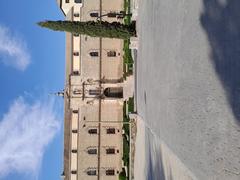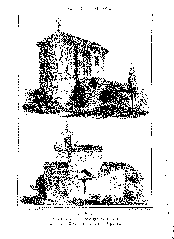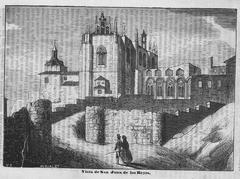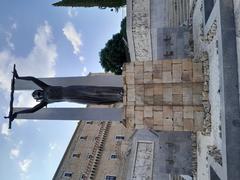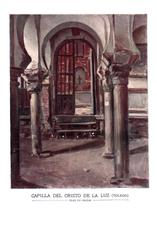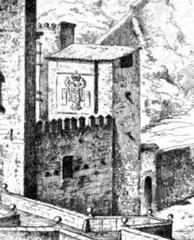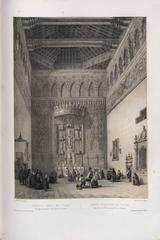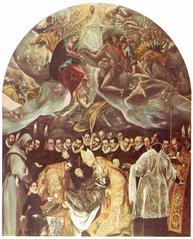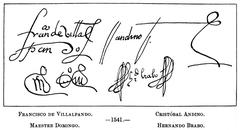
Convent of Santa Fe, Toledo, Spain: Visiting Hours, Tickets, and Historical Guide
Date: 04/07/2025
Introduction
Located in the heart of Toledo, the Convent of Santa Fe is a remarkable monument that reflects the city’s deep and diverse cultural heritage. With origins as part of an 11th-century Islamic palace and a history shaped by Christian military orders and female monastic communities, the convent epitomizes Toledo’s role as a crossroads of civilizations. Today, it serves both as a historical site and a vibrant contemporary art center. This guide offers a comprehensive overview of its history, architecture, visitor information, and practical travel tips.
For more details and the latest updates, consult official sources and tourism platforms. (cultura.castillalamancha.es, toledospain.click, official Toledo tourism website)
Table of Contents
- Introduction
- Historical Origins and Evolution
- Architectural Highlights
- Religious and Cultural Significance
- Modern Transformation and Current Use
- Visitor Information: Hours, Tickets, Accessibility
- Special Events and Activities
- Nearby Attractions and Suggested Itineraries
- Frequently Asked Questions (FAQ)
- Travel Tips and Summary
- References
Historical Origins and Evolution
The Convent of Santa Fe’s story begins with its foundations as part of an 11th-century Islamic palace complex, constructed under taifa king al-Ma’mun. The most prominent remnant of this period is the Capilla de Belén (Oratory of al-Ma’mun), showcasing striking Islamic architectural features.
Following Toledo’s conquest by Christian forces in 1085, the site was repurposed and, in 1210, donated by King Alfonso VIII to the Order of Calatrava. The Calatravans established a priory and constructed the Church of Santa Fe, marking the beginning of its Christian monastic history. Over the centuries, the convent hosted various female religious orders, most notably the Comendadoras de Santiago from 1503 onwards, whose tenure left a distinctive architectural and spiritual imprint (cultura.castillalamancha.es, toledospain.click).
Architectural Highlights
A Palimpsest of Styles
The convent’s structure is a blend of Islamic, Romanesque, Gothic, Mudéjar, Renaissance, and Baroque elements. Key features include:
- Capilla de Belén: An 11th-century domed Islamic oratory, one of Toledo’s rarest examples of caliphal architecture.
- Sala de los Alfarjes: Room noted for its intricately carved wooden ceilings.
- Polylobed Arches (Sala de los Arcos Polilobulados): Characteristic of Mudéjar style.
- Baroque Staircase and Renaissance Additions: Embellishments from later periods that demonstrate changing artistic tastes.
- Cloister and Gardens: Peaceful spaces ideal for reflection and photography.
This architectural syncretism is emblematic of Toledo, where structures often bear the marks of successive civilizations (Wikipedia, toledoguiaturisticaycultural.com).
Religious and Cultural Significance
Originally a site of Islamic power and culture, the convent became a spiritual center for Christian military orders after the Reconquista. The Order of Calatrava and, later, the Comendadoras de Santiago made it a hub of monastic life, charity, and education. The convent is also intertwined with local legends and miraculous events, particularly those associated with Santa Beatriz de Silva, an influential religious reformer.
Its role as a protected Bien de Interés Cultural since 1919 underscores its national importance, both as a religious monument and a symbol of Toledo’s multicultural legacy (toledospain.click).
Modern Transformation and Current Use
The 19th and 20th centuries brought periods of decline, especially during the government’s seizure of church properties and the turmoil of the Spanish Civil War. Restoration efforts in the early 21st century revitalized the convent, integrating it into the Museo de Santa Cruz and, since 2019, transforming it into the Centro de Arte Moderno y Contemporáneo de Castilla-La Mancha (CORPO). It now houses the Roberto Polo Collection, blending its rich history with a contemporary cultural mission (cultura.castillalamancha.es).
Visitor Information: Hours, Tickets, Accessibility
- Opening Hours:
Typical hours are Tuesday to Sunday, 10:00 AM – 6:00 PM; closed Mondays and public holidays. Last entry is usually 30 minutes before closing. Always confirm current hours before your visit as schedules may change during festivals or special events (official Toledo tourism website). - Tickets:
Admission ranges from €3–€6, with potential discounts for students, seniors, and groups. Tickets can be purchased online or onsite. Some exhibitions may have separate pricing (atickettotakeoff.com). - Guided Tours:
Available at set times in several languages; booking ahead is recommended for in-depth historical and architectural insight. - Accessibility:
The convent has ramps and accessible restrooms, but some historic areas remain challenging due to uneven floors and stairs. Contact ahead for detailed accessibility information. - Facilities:
Restrooms and a small gift shop are available. No on-site dining, but the surrounding old town offers many options.
Special Events and Activities
As a contemporary art center, the convent hosts rotating exhibitions, concerts, workshops, and occasional religious or cultural festivals. Check the official website or local tourism platforms for up-to-date event schedules. Participation in these activities can greatly enrich your visit.
Nearby Attractions and Suggested Itineraries
The Convent of Santa Fe is ideally situated for exploring Toledo’s other landmarks, including:
- Plaza de Zocodover: The city’s main square.
- Toledo Cathedral: A masterpiece of Gothic architecture.
- Alcázar of Toledo: Iconic fortress and museum.
- Synagogue of El Tránsito and Santa María la Blanca: Testaments to Toledo’s Jewish heritage.
- Monastery of San Juan de los Reyes: Another highlight of medieval religious architecture.
Consider purchasing the Toledo Tourist Wristband (“Pulsera Turística de Toledo”) for access to multiple sites at a discounted rate, though inclusion of the convent may vary (atickettotakeoff.com).
Frequently Asked Questions (FAQ)
Q: What are the Convent of Santa Fe’s visiting hours?
A: Typically Tuesday to Sunday, 10:00 AM – 6:00 PM; closed Mondays and public holidays. Confirm current schedules before your visit.
Q: How much does admission cost?
A: General admission is €3–€6, with possible discounts for eligible visitors.
Q: Are guided tours available?
A: Yes, guided tours and audio guides are available in several languages.
Q: Is the convent accessible for visitors with disabilities?
A: Some areas are accessible; contact the site ahead for specific arrangements.
Q: Is photography allowed?
A: Photography is generally permitted without flash; check signage for specific restrictions.
Travel Tips and Summary
- Best Time to Visit:
Spring and autumn offer mild weather and fewer crowds. Visit during weekday mornings or late afternoons for a quieter experience (turispanish.com). - Getting There:
The convent is within easy walking distance from Toledo’s main attractions. Toledo is accessible by high-speed train or bus from Madrid. - Dress Code:
Modest attire is recommended as the site retains religious significance. - Safety:
Toledo is generally safe, but remain attentive to personal belongings in crowded areas.
The Convent of Santa Fe stands as a living symbol of Toledo’s enduring spirit—melding Islamic, Christian, and Jewish legacies with contemporary artistic expression. A visit here is not just a step into the past, but a gateway to understanding the city’s ongoing narrative of cultural fusion and resilience.
References and Further Reading
- cultura.castillalamancha.es
- toledospain.click
- official Toledo tourism website
- turispanish.com
- atickettotakeoff.com
- archetype.co.uk
- Wikipedia
For the latest news, itineraries, and travel tips, download the Audiala app or follow official Toledo tourism channels.

